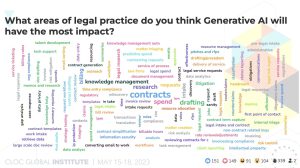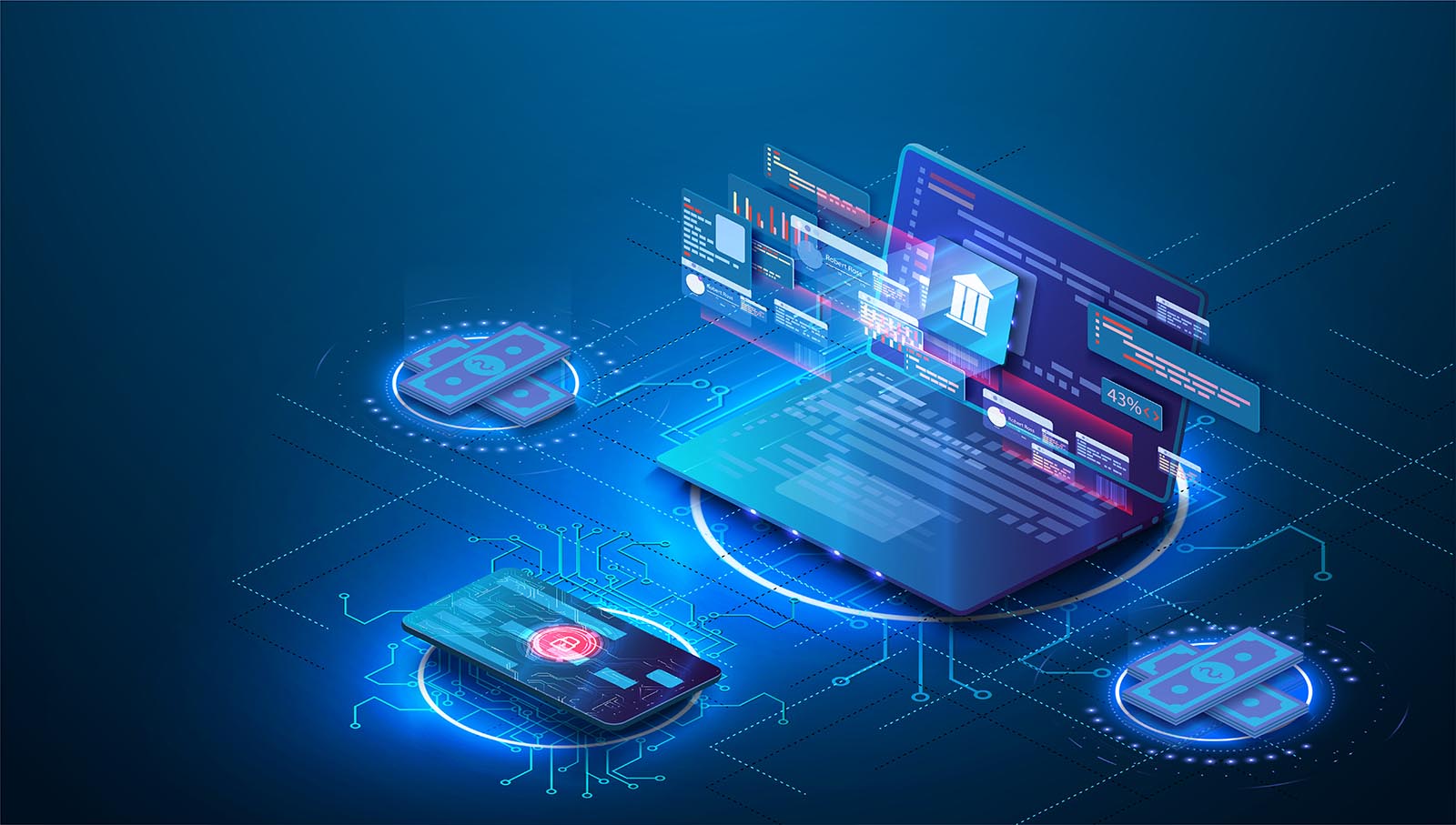Note: originally published on the CLOC.org blog.
The rapid growth of generative Artificial Intelligence (AI) promises to fuel seismic changes throughout every aspect of the business world. A quick glance at recent headlines gives a good sense of just how the expanding power of AI-spawned text, images, and media is reverberating:
- Google added the power of Generative AI to its search engine, allowing users to receive AI-generated summaries to select queries.
- IBM is launching a new “WatsonX” studio for organizations to create their own generative AI workflows.
- A Goldman Sachs survey forecast “significant disruption” to labor worldwide from Generative AI — potentially affecting up to 300 million jobs.
The legal industry will be in the middle of the Generative AI revolution. But what will that transformation look like for the legal world — and how can the industry best take advantage of its promises and potential?
Three areas of transformation
These three legal areas will see meaningful opportunities for value from generative AI:
- SPEND MANAGEMENT. Generated AI can also boost departments’ ability to make sense of their tens of thousands of lines of invoice data by delivering insights into value, helping departments understand exactly what they are paying for. These quick, accessible insights are a powerful way to stop the attorney habit of “rubber-stamping” invoices and address capacity concerns for busy departments. It also increases the quality and speed of invoice review, flagging patterns that can violate billing guidelines (especially for lengthy, complex invoices).
Additionally, generative AI can assist with vendor management — particularly tough conversations around rate, value and performance. When backed by detailed, insightful data, it is easier to have productive, emotion-free, and surprise-free conversations.
EXAMPLE: Invoice summarization. Onit integration with ChatGPT provides a quick, insightful summary of a contract’s tasks to analyze overall value – allowing users to glimpse into the hours spent per task, the work done by specific timekeepers, and much more.
- CONTRACTING. With Generative AI’s ability to generate content such as summaries and redlines, Contracting is a natural place where the technology will have significant impact. In fact, contracting is one area where we see more mainstream adoption of AI — for example, most of Onit’s CLM customers use AI in contracting. Fueling this growth? The improvement in legal comprehension by Generative AI; for example, GPT4 passed the bar exam, scoring in the top 90th percentile on one 2023 tryout. These advancements mean the industry can use AI as a co-pilot to run contract playbooks. AI serves as a powerful tool to help reduce some of the repetitive manual work plaguing this part of the process and improve consistency.
What about post-signature? In an era of constant mergers and acquisitions, regulation and compliance demands, companies often find themselves with questions about the contracts in their repository. AI-driven analysis gives a valuable look into these contracts and their clause libraries, allowing the new company to quickly identify risks and remediate them.
EXAMPLE: Contract analysis. Onit’s AI Co-Pilot sits alongside you as you review your contract. You can ask it to spot issues, suggest redlining, compare against your template language and flag deviations from your standards.
- LEGAL REQUESTS. This impact is one our CLOC panel and audience were extremely excited about; sometimes, the most beneficial use of AI is to remove manual work (like form filling), remove friction and encourage the adoption of our tools and processes. AI technology can help to kick off the workflow with minimal user intervention, automating legal request creation, determining routing priorities, and establishing tracking — removing significant administrative tasks for attorneys. It can also assist as the “first response,” automating common business requests before they go to Legal.
EXAMPLE: Creating a legal request. Onit’s AI integration can read an email chain and automatically generate a legal request.
This is what our audience at CLOC 2023 said when we asked them about the impact of Generative AI. Do you agree with their thoughts?

Next steps for Legal: Three things to remember
As Legal takes its next steps into the AI world, it’s a good idea to have these general principles in mind:
- Be future-minded. Seek out vendors with a clear, future-proofed vision and plan for generative AI in their product. Additionally, look to partner with organizations prioritizing privacy and security with AI; they should offer commercial licenses that protect privacy. Once partnerships and processes are in place, layer the technology on top of that solid foundation to ensure successful rollout and implementation.
- Keep on top of technology. Designate some time for yourself or ask a team to keep up with the possibilities and enhancements of Generative AI. In a world where rapid advancements happen weekly (if not daily), education and knowledge are king.
- Address the fear of the unknown. The disruptive effects of new technology can be intimidating for many. Don’t rush or push anyone into this new world; encourage them to learn and engage with the space, focus on opportunities and use carefully tested and validated tools.
Learn more about how Onit’s AI-enabled products digitally transform the contract lifecycle.






